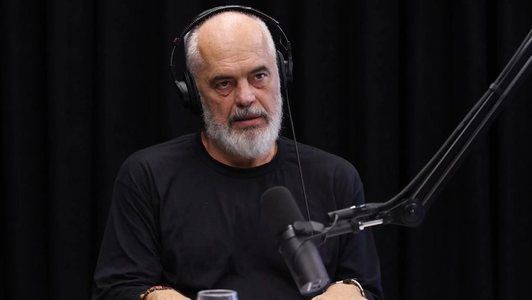
As Albania confronts a host of deepening social, economic, and political crises, an unexpected debate has emerged, capturing public attention: Prime Minister Edi Rama’s proposal to ban social media platforms like TikTok and Snapchat. The timing is striking. TikTok has become a favored platform for Albanians—particularly the youth—to voice their dissatisfaction with Rama’s government and its policies. This move raises pressing questions about Rama’s stance on free speech and dissent in an increasingly polarized society.
The Hypocrisy of Free Speech Under Rama’s Rule
Just months ago, Rama and his communications team criticized Socialist Party MPs for failing to engage actively on social media, emphasizing the importance of shaping online narratives. Platforms like Facebook and Instagram have long been key tools for Rama’s administration to project a positive image. However, with TikTok emerging as a hotbed for dissent, the government’s approach has shifted dramatically.
TikTok now serves as a platform where citizens—often anonymous—air sharp criticisms of Rama and his key cabinet members, including Erion Veliaj and Belinda Balluku. This anonymity has created a space for users to denounce corruption, failed reforms, and what many perceive as the government’s 11 years of stagnation. Rather than addressing these grievances, Rama has chosen to target TikTok itself, painting it as a source of social decay and violence.
Authoritarian Rhetoric and Control of Information
Rama’s remarks about potentially banning TikTok and Snapchat echo tactics often seen in autocratic regimes, from Vladimir Putin’s Russia to Iran and Afghanistan. In these systems, social media is frequently branded a threat to national stability, leading to sweeping censorship measures. The justifications are nearly identical: protecting “public morality,” “ensuring national safety,” or “preventing harmful influences.” In reality, such bans suppress individual freedoms and silence dissent.
Rama’s own rhetoric—marked by personal attacks and public bullying of critics—reflects a troubling authoritarian streak. His government has consistently used state resources to amplify propaganda while stifling opposition voices. A leader who resorts to such tactics cannot credibly claim to be safeguarding the mental well-being of the youth. Instead of addressing systemic problems such as deteriorating education, a lack of recreational spaces, and rising school violence, Rama has opted to scapegoat social media platforms.
TikTok: A New Opposition Arena
TikTok has evolved beyond an entertainment platform, becoming a critical space for opposition voices and a tool for citizens seeking change. The platform’s anonymity enables individuals to courageously expose governmental abuses, corruption, and policy failures. Within this context, Rama’s proposal to ban TikTok is widely seen as an attempt to shut down a key avenue for free expression.
The timing of this proposal coincides with growing failures under Rama’s leadership. Albania’s education system is in crisis, school safety is alarming, and the social safety net is crumbling. Instead of tackling these core issues, the government is shifting focus to social media as a convenient scapegoat.
The Dangers of a TikTok Ban
Banning TikTok would not solve Albania’s societal problems; it would set a dangerous precedent for censorship and erode public trust. Such a move would reinforce perceptions of Rama’s government as increasingly authoritarian and intolerant of dissent.
In a democracy, governments must take responsibility for their shortcomings and work toward meaningful solutions rather than silencing criticism. For Albania, a country aspiring to European Union membership, adopting repressive policies like social media bans runs counter to European norms of free speech and human rights.
A Prime Minister Facing the Shadow of Authoritarianism
Edi Rama’s approach to governance increasingly undermines democratic values, deepening public distrust. A leader who blames social media for societal issues while seeking to suppress it for political expediency raises fundamental concerns about the state of democracy in Albania. Ultimately, Albanians deserve the right to speak and be heard—a right that must be protected, not censored, to shield a government from accountability.
